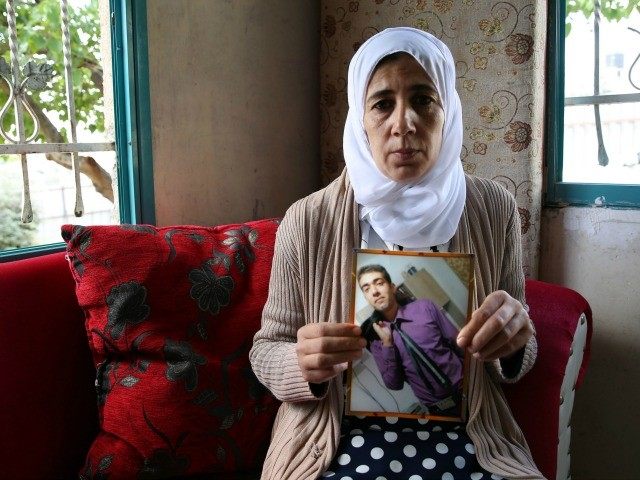HURA (ISRAEL) (AFP) – A year of uncertainty for Hisham Al-Sayed’s family finally came to an end this month when a grainy black and white photo appeared on a Hamas-affiliated television channel.
Their 27-year-old son had disappeared a year earlier from his home in the Negev desert in Israel.
But the image of Sayed’s face was the first time the Islamist movement that runs the Gaza Strip had said they were detaining him.
“When I saw him on the video, I felt relieved of course because I knew he was there. Before that I didn’t know that he was still alive,” his father Sha’aban said from the living room of their modest home at the end of a dirt road.
Sayed is a Bedouin Muslim Arab with Israeli citizenship, without any apparent connection to the Israeli authorities, making his case particularly unusual.
How he got from his home into Gaza, which is blockaded by Israel, is unclear.
The Israeli army declined to comment on the matter, but his family say he could have somehow scaled or cut the heavily guarded fence surrounding the Palestinian territory.
The family say Sayed has schizophrenia and has disappeared to Jordan and Egypt multiple times, eventually being returned by the authorities.
In fact, they say, he twice before broke into Gaza in 2010 and 2013, with the authorities eventually returning him after realising he was unwell.
“But this time, I don’t why, in April 2015, they (Hamas) kept him and detained him, but didn’t say they had him,” his father said.
In the months after his disappearance, a police call was put out in Israel, but the family gradually learned he was likely to be in Gaza.
Then on April 1 this year, Hamas released a video with photos of four Israeli citizens they claim to be holding.
Two of them, Oron Shaul and Hadar Goldin, were soldiers in the 2014 war in Gaza. The Israeli army believes they were killed and Hamas has yet to provide reliable evidence to counter that.
The third is Avraham Mengistu, an Israeli Jew of Ethiopian descent, who Hamas announced they had in 2015 and whose family also say has mental health problems.
The fourth face was Sayed, who was accused of being a soldier for the Israeli army. It was the first time Hamas had publicly confirmed holding him.
– ‘Mentally ill’ –
His family dismiss the claim he is a soldier or a spy as ridiculous and are worried for his health.
“Hisham is mentally ill. He has schizophrenia,” his father said. “He needs to take tablets every day, and some every month. I hope Hamas give him his tablets.”
The family are Muslims and say they have previously had good relations with people in Gaza.
Many Israeli Bedouins serve in the Israeli military, though they are not obliged to.
A letter written by the “community of Israeli Bedouins” earlier this month said Hamas was acting “immorally” as it was “holding a mentally disabled Muslim person,” according to Israeli media.
Sayed’s father called for intervention from Turkey and Qatar, two nations which have favourable relations with Hamas.
“I call on anyone that has a relationship with Hamas to talk to them about this matter. Because it is not reasonable for Hamas to use someone with psychological problems.”
Sayed’s mother Manal, wearing a hijab, echoed his call.
“I don’t want to interfere in Gaza,” she said. “Just return him to me, that is all.”
Israel does not allow its citizens to enter Gaza, partly over fears they may be used as bargaining chips to demand concessions, including the release of prisoners.
In 2011, Israel released more than 1,000 Palestinian prisoners in exchange for soldier Gilad Shalit, who had been held by Hamas for five years.
Israeli media have reported Hamas is demanding the freedom of 56 of those prisoners who have since been rearrested in exchange for more information about the four Israelis.
Hamas did not respond to requests for comment.
Palestinian militants in Gaza have also fought three wars with Israel since 2008, including a devastating conflict in the summer of 2014.

COMMENTS
Please let us know if you're having issues with commenting.